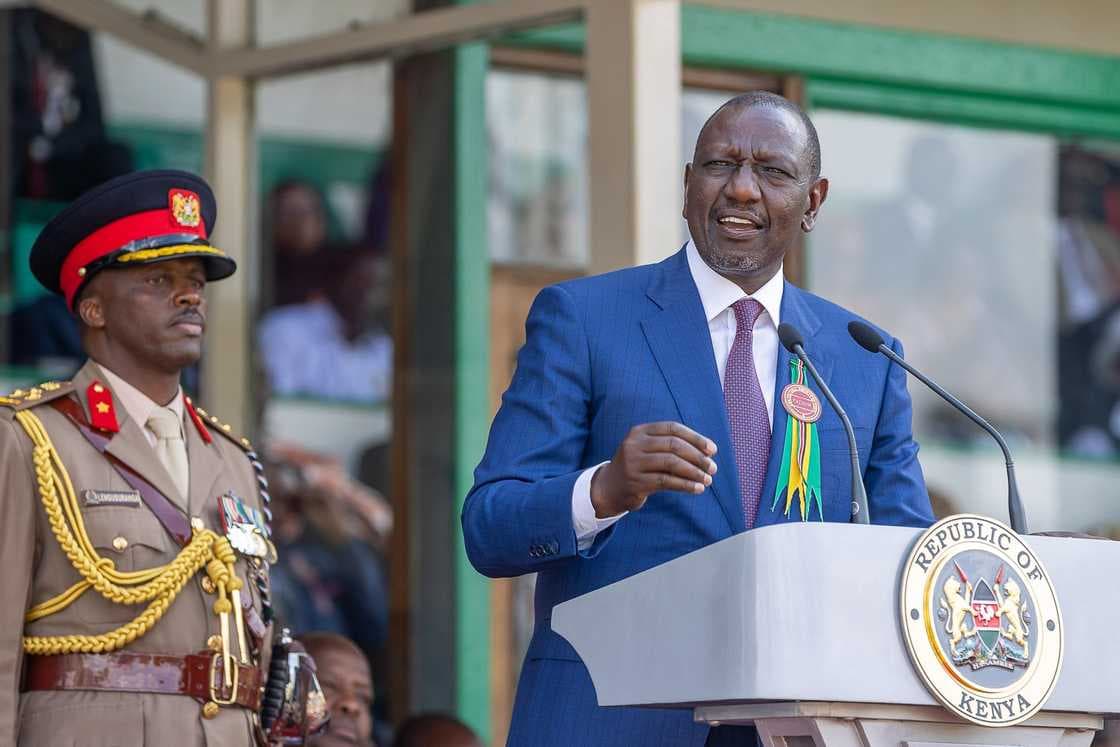We're loading the full news article for you. This includes the article content, images, author information, and related articles.
President Ruto’s administration launches a new 250,000-unit affordable housing phase, backed by international finance, just days after the High Court affirms the controversial housing levy’s legality.

NAIROBI, KENYA – President William Ruto on Friday, October 24, 2025, announced a major new phase of the government's Affordable Housing Program (AHP), committing to the construction of 250,000 new units over the next three years. The initiative, unveiled at State House, Nairobi, is bolstered by KSh 75 billion in new financing from a consortium of international partners, including the World Bank and the African Development Bank (AfDB).
The announcement, made at approximately 11:00 AM EAT, comes just two days after a three-judge High Court bench on Tuesday, October 22, 2024, declared the Affordable Housing Levy constitutional, ending months of legal uncertainty that had hampered the project's financing mechanism. The levy, set at 1.5% of gross monthly income for both employees and employers, is the cornerstone of the state's housing fund.
According to the presidential address, the new funding aims to de-risk private sector investment and expand the capacity of the Kenya Mortgage Refinance Company (KMRC). The World Bank, which has previously supported the AHP with a $250 million loan to establish the KMRC, will extend further credit lines to increase the availability of low-cost mortgages. The AfDB’s involvement will focus on financing for developers and supporting the construction materials supply chain, building on its previous support for Shelter Afrique, the Nairobi-headquartered pan-African housing financier.
“This next phase is not merely about construction; it is about building communities and empowering our citizens with the dignity of homeownership,” President Ruto stated. “With the legal framework now firmly in place, we are accelerating our promise to every Kenyan.”
The government’s renewed push addresses one of Kenya's most pressing socio-economic challenges. The country faces an annual housing demand of 250,000 units against a supply of only 50,000, creating a cumulative deficit exceeding two million homes. This shortfall has driven rapid growth in informal settlements, particularly in urban centres like Nairobi, where an estimated 60% of residents live in slums.
The AHP is structured to cater to various income levels, offering social housing for those earning under KSh 20,000 per month and affordable units for individuals with incomes between KSh 20,000 and KSh 149,000. However, the program's performance has so far struggled to match its ambitious targets. Data from the Kenya National Bureau of Statistics (KNBS) released in its 2025 Economic Survey showed a significant slowdown, with only 1,655 AHP units completed in 2024, a sharp 50.7% decline from the 3,357 units finished in 2023. This figure stands in stark contrast to the administration's goal of delivering over 200,000 units annually.
Proponents of the program argue it is a critical driver of economic growth. The government estimates that the AHP has already created over 160,000 jobs in the construction sector and its value chain. The development of local manufacturing for building materials is also a key objective, intended to reduce import dependency and stabilize costs.
Despite these benefits, the housing levy remains contentious among many salaried Kenyans who view it as an additional tax burden amid a high cost of living. The policy has faced a series of legal battles since its inception. A November 2023 High Court ruling initially found the levy unconstitutional, a decision upheld by the Court of Appeal in January 2024, which cited its discriminatory nature as it only targeted those in formal employment. The government responded by passing the Affordable Housing Act in March 2024 to create a more comprehensive legal framework, which has now been validated by the courts.
Analysts caution that significant hurdles remain. The rising cost of construction materials, which have increased by over 45% since 2021, coupled with challenges in land acquisition and inadequate infrastructure, could continue to impede progress. Furthermore, with only about 30,000 active mortgages nationwide, access to affordable end-user financing remains a primary obstacle to widespread homeownership. The success of this new phase will depend on the government's ability to translate international funding and a favourable court ruling into tangible, affordable homes for millions of Kenyans.
Keep the conversation in one place—threads here stay linked to the story and in the forums.
Sign in to start a discussion
Start a conversation about this story and keep it linked here.
Other hot threads
E-sports and Gaming Community in Kenya
Active 9 months ago
The Role of Technology in Modern Agriculture (AgriTech)
Active 9 months ago
Popular Recreational Activities Across Counties
Active 9 months ago
Investing in Youth Sports Development Programs
Active 9 months ago